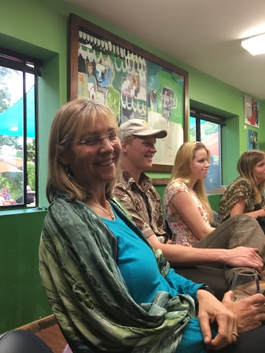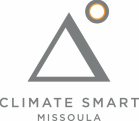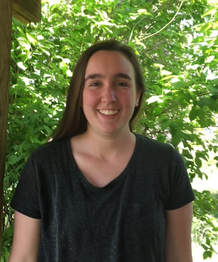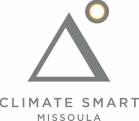 The amazing Beth Schenk at our meetup! The amazing Beth Schenk at our meetup! Late last August I eagerly packed my things while profusely sweating in the hot and humid climate of northern Indiana. I naively looked forward to the cooler, drier weather of my new home in Missoula where I would be attending graduate school. Instead I arrived to a hot, smoke filled valley. Looking out my window on one of my first morning I mistook the smoke for a beautiful morning fog. Since then I have heard many horror stories of the impacts of wildfire smoke on physical and mental health. I had a professor who skyped in from Seattle because she was so sick she couldn’t be in Missoula. A parent told me their child could not play outside for nearly two months. While a sort of post-traumatic stress may keep wildfire smoke at the forefront of Missoulian minds, this is just one example of how climate change and community health are related. At Thursday night’s monthly meetup covering the topic of health and climate, participants helped generate a list of what we knew about the possible global health consequences of climate change. Here are some of the things we came up with:
A recurring theme throughout the night’s discussion centered on how we define vulnerable populations. In the context of climate and health, vulnerable populations have traditionally been defined as the young and elderly. Several participants called for outdoor workers to be included in this definition as they face numerous occupational hazards. Think local farmers and highway workers. Let’s Be Proactive Thankfully, as the meetup’s title “Healthy Community and Summer Smart” suggests, Thursday night’s discussion was not all doom and gloom. Nurse scientist, St. Patrick Hospital’s sustainability coordinator, and Climate Smart executive team member Beth Schenk spoke with us about some of the exciting efforts she, the hospital, and local health researchers are making to create a healthier community. Amy added to this proactive message by discussing some of Climate Smart’s “Summer Smart” work. Nurses: The New Climate Messengers Beth mentioned a few of the efforts she has been involved with both nationally and around Missoula:
More local efforts Check out our “Summer Smart” tab for information about some of our health and climate efforts. Here are a few highlights:
Since August I have come a long way from mistaking smoke for fog. As a new member of the Climate Smart team, I am excited to continue learning about the local effects of climate change and what we can do here in our own community. I found the proactive message of Thursday’s discussion an inspirational launch point as I dive into the world of climate change work this summer. - Mattie Lehman, Intern and UM Brainerd Fellow
0 Comments
Leave a Reply. |
AuthorsAbby Huseth Archives
July 2024
Categories
All
|


 RSS Feed
RSS Feed


